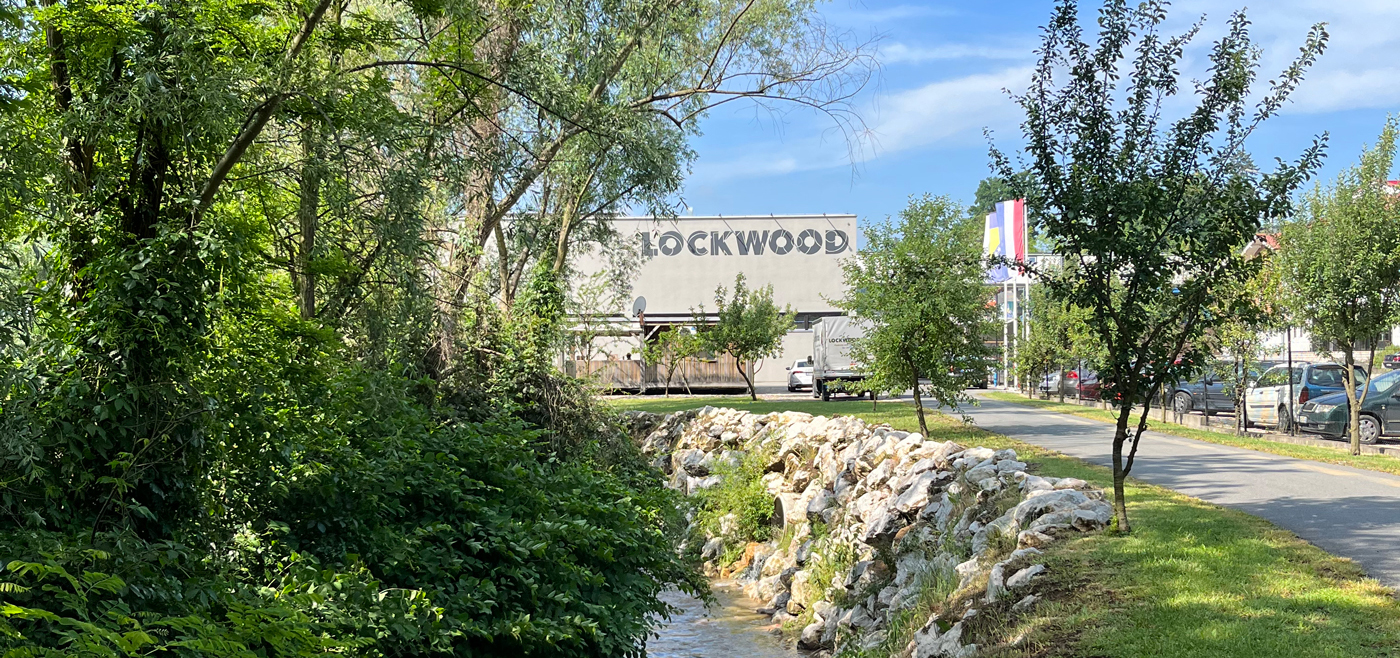
It all started with a comment from one of the employees in Twijzel, Zarko Mandir, who had fled the war in the Balkans. Pilat&Pilat grew rapidly in the nineties and its own workshop could hardly keep up with production. ‘Until then, everything happened in Friesland,’ says Gjalt Pilat. “We bought the wood locally and made the furniture in our own workshop. Zarko pointed out the possibilities of his native Bosnia to me. Almost 80 percent of the country is forested, the wood goes straight from the land into the factory.’
A visit to Bosnia changed everything. Gjalt: ‘I felt: if I have to set up something new, I like to do it here. Bosnia reminds me a bit of the Frisian countryside of the fifties. People marry young and then have children. And everyone has a vegetable garden where unsprayed vegetables are grown. As an entrepreneur I am a quick decision maker. Does it feel good? Then we will do it.’ From 2003, the Nordent factory in Bosnia grew organically with the company, Gjalt Pilat divided his time between his two ‘families’, the one in Twijzel and the one in Tesanj.


The Pilat&Pilat factory in Bosnia has grown into a a well-known name in less than fifteen years. Lockwood no longer only produces the Famylje collection, other companies also outsource their production here.


The continued growth forced Pilat to take new steps. In 2017, the new extension of the factory in Tesanj, Lockwood, opened – now a collaboration with cabinet company Interstar from Assen. Lockwood today has 4000 meters of production space. In addition to the solid wood workshop, there is now also a department for veneer and sheet material, with three CNC milling machines, a metal workshop, paint spraying and upholstery department. Thousands of cubic meters of oak, elm and walnut wood are ready to be processed in the woodshed. The reopening of Lockwood seems right on time, because there is plenty of interest. Now that the economy is picking up, other (Dutch) furniture brands are queuing up to outsource parts of their production in Tesanj as well. Bosnia makes possible what is no longer possible in its own country: sustainable production of high quality.

About sixty people now work in the Lockwood factory, ten of them women. Pilat: “We can grow to about eighty employees in this factory in the coming years.” The strength of Lockwood, according to the entrepreneur, is that the family business is prepared to share networks with an eye for continuity.
This is very tangible during the opening of the new Lockwood, on Wednesday 17 May 2017. It is a top Bosnian party, in and around the new building, just outside Tesanj. Or, to quote Gjalt Pilat, for whom Bosnia has now become a second homeland: ‘There are many nice people, there is a lot of food, music and hospitality. That’s how I know the Bosnians.” While speeches are being held under the roof of the woodshed, including by the mayor of the town, and the employees dance to the music of a Bosnian orchestra, three sheep are turning outside on a barbecue the size of like a trailer. More than a hundred Dutch guests – relations, friends, and family of Pilat and Interstar – will join the party. It is the official start of the new factory, and the joint venture of the two furniture companies from the North.
Anyone who looks around sees it for themselves. The pros of Bosnia are obvious: forests full of wood, sufficient labor force and a strong industrial region. Gjalt Pilat: ‘At the end of the nineties the realization came: Only very strong brands survive with production in the Netherlands. If I wanted to secure the future of our quality furniture made of solid wood, production costs had to be reduced.’ He remembers that first trip to Bosnia with Zarko well. That was confronting, through a landscape full of mines and destroyed houses. “It’s nice how it turned out. The fact that Zarko brought us to Bosnia pays off on both sides. We can continue to build our future, but also that of our Bosnian ‘family’.’
Text: Renske Schriemer


Gjalt Pilat: ‘There are friendly people, there is food, music and hospitality. That’s how I know the Bosnians’

